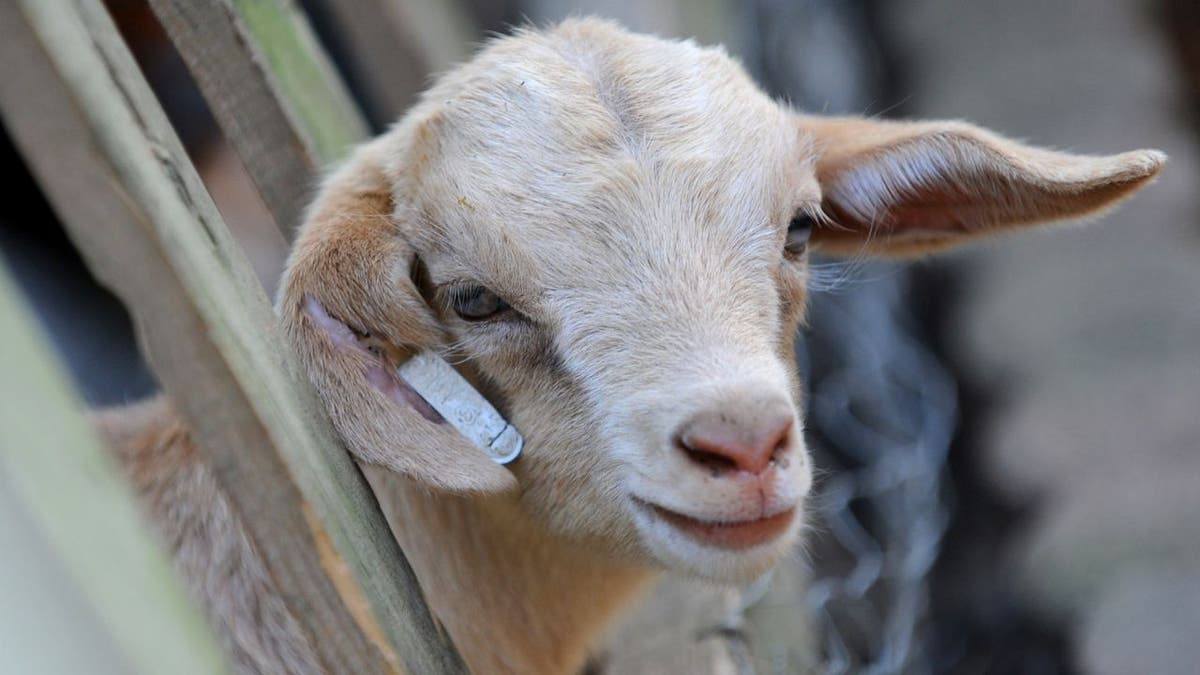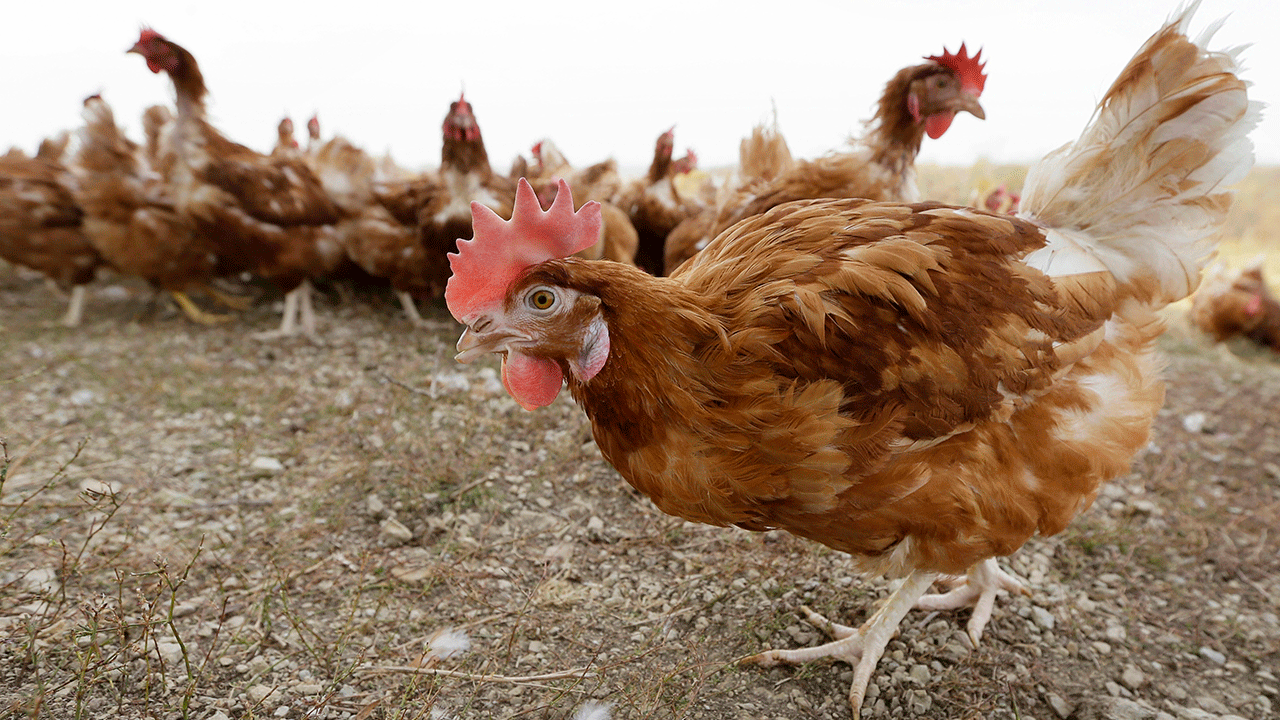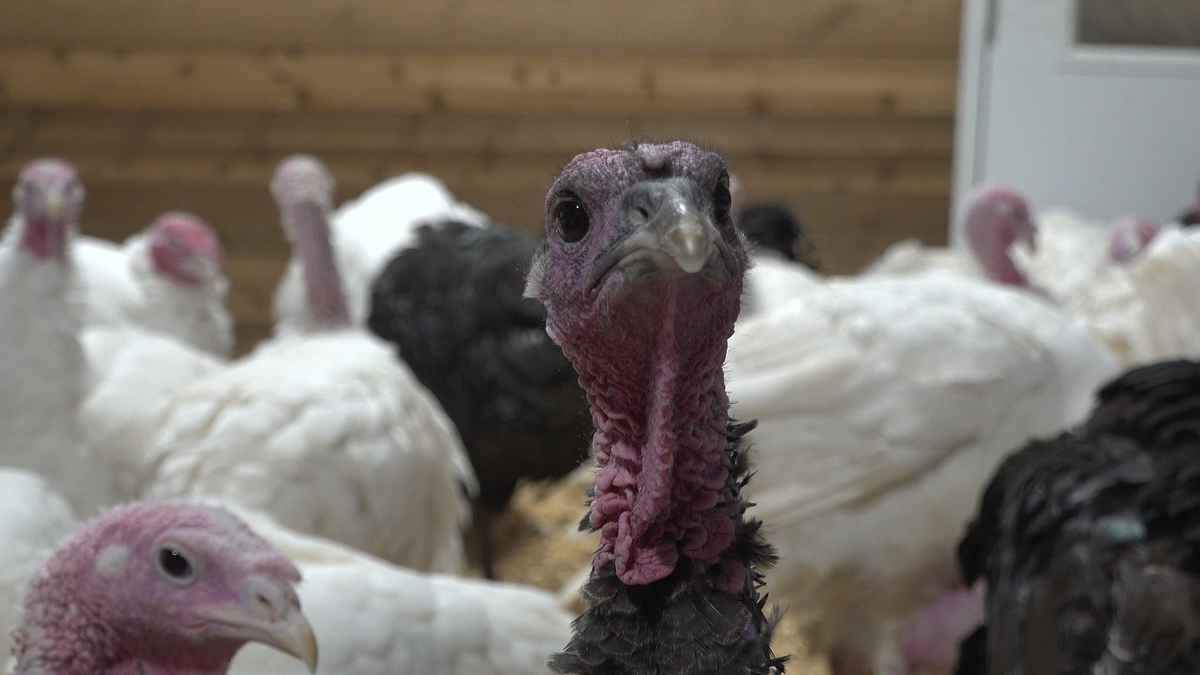Bird flu outbreak affects over 24 states, poultry prices rise
Poultry farmers across the country are on edge as the highly pathogenic avian influenza is on the rise in the U.S., with more than 24 states impacted since the start of 2022.
A goat in Minnesota has tested positive for the highly pathogenic avian influenza (HPAI), or bird flu, marking the first U.S. case of bird flu in domestic cattle, sheep, goats or their relatives.
The positive juvenile goat was residing on a Stevens County farm that already had bird flu infected poultry, the Minnesota Board of Animal Health announced Wednesday. All poultry on the property were already quarantined from the HPAI detection in February.
Following the goat’s positive result, the board says it quarantined all other species on the premises and is working with the Dept. of Agriculture (USDA) to investigate the transmission of the virus in the case.

File photo: A baby goat sticks his head through a fence in New York. (Lori Van Buren/Albany Times Union via Getty Images)
'ZOMBIE DEER DISEASE' CONCERNS SCIENTISTS OVER POSSIBLE SPREAD TO HUMANS
"This finding is significant because, while the spring migration is definitely a higher risk transmission period for poultry, it highlights the possibility of the virus infecting other animals on farms with multiple species," Dr. Brian Hoefs, the state veterinarian, said in a statement.
"Thankfully, research to date has shown mammals appear to be dead-end hosts, which means they’re unlikely to spread HPAI further."
The board says the risk to the public is extremely low, and any risk of infection is limited to people in direct contact with infected animals. To date, nobody in the U.S. has become ill following contact with mammals infected with this virus.
HPAI is a serious disease that requires rapid response because it is highly contagious and is often fatal to chickens, the Dept. of Agriculture says.
According to the Minnesota Board of Animal Health, the owner in the goat case notified the agency earlier this month of unusual deaths of newly kidded goats on the property where a backyard poultry flock was depopulated due to HPAI in February.
The goats and poultry had access to the same space, including a shared water source, the board said in a press release.
One of the goat carcasses was taken to the University of Minnesota Veterinary Diagnostic Laboratory (VDL), where it tested positive for influenza A. The National Veterinary Services Laboratories (NVSL) later confirmed it was H5N1 HPAI, the same virus circulating in the national outbreak that began in 2022.
Millions of chickens, turkeys and other birds were slaughtered this year because of the outbreak.

Chickens walk in a fenced pasture at an organic farm in Iowa in 2015. (AP Photo/Charlie Neibergall, File)
WISCONSIN DEER FARM INFECTED WITH FATAL BRAIN DISEASE
Samples from the adult goats were negative for HPAI and all appeared healthy with no more sick goat kids being reported since March 11.
HPAI has been previously diagnosed in other mammalian species such as skunks, dogs and cats.
Animals with weakened or immature immune systems, like the goat kids in this case, are at higher risk of contracting disease, the board said.
There are no prior reports of natural HPAI infection in goats.

A turkey from Old Glory Farm in Elkhorn, Wisconsin. (Fox News Digital/ Jon Michael Raasch)
CLICK HERE TO GET THE FOX NEWS APP
There has been limited experimental data on HPAI infection in ruminants, and USDA has tracked more than 200 detections of HPAI in mammals across the country since the start of the 2022 HPAI outbreak.
The Minnesota Department of Health (MDH) provided recommendations for personal protective equipment and is monitoring the health of those in direct contact with the infected goats.
Any person who develops respiratory or gastrointestinal symptoms after exposure to the goats may be voluntarily tested for avian influenza and other respiratory pathogens.

